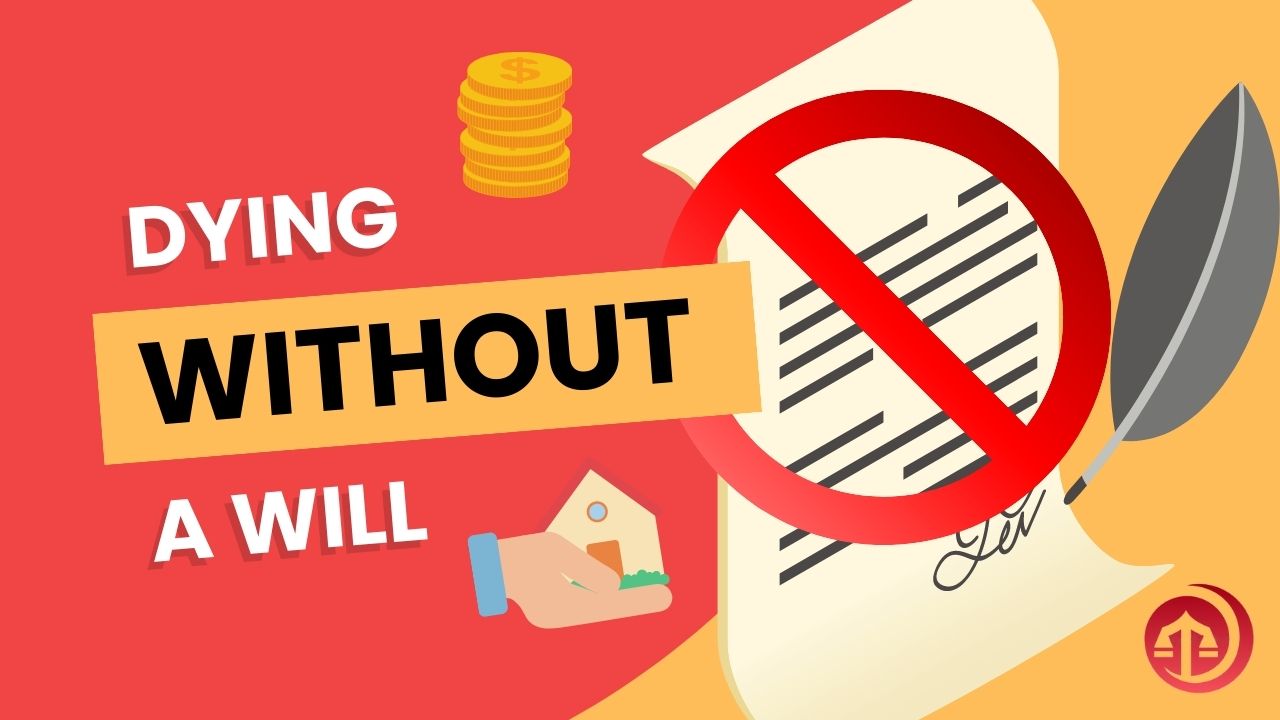|
When a person dies without leaving a will he has died “intestate.” When this occurs certain rules apply in regard to who is entitled to inherit the deceased's possessions which are called his "estate." In Trinidad and Tobago these rules of intestacy are set out in the Administration of Estates Act Chap 9:01. When a person dies without a will the following persons have a right to a share of his estate:
The Marital spouse
The person married to the deceased at the time of his death has a right to inherit a share of the deceased’s estate under the rules of intestacy. If divorced from the deceased at the time of death, the surviving divorcee would not be entitled to a share of the estate. However, if the partners were separated informally and were still legally married at the time of death, the surviving spouse will still be entitled. The Children of the deceased If the deceased had a child or children at the time of his death, the children would be entitled to a share of the estate. According to the Administration of Estates Act section 24:
The Cohabitant A person who cohabitated with the deceased at the time of his death can also be entitled to a share of his estate under the rules of intestacy. The surviving person will only be considered to have been living in a cohabitational relationship with the deceased if she and the deceased, not being married, both lived together for at least 5 years immediately preceding the death of the deceased and they lived together like husband and wife. According to the Administration of Estates Act section 25(1): 25(1). Notwithstanding section 24, where an intestate dies leaving no surviving spouse, but dies leaving a surviving cohabitant, the cohabitant shall be treated for the purposes of this Act as if he or she were a surviving spouse of the intestate. This means that if the deceased had no spouse but left a surviving cohabitant, the surviving cohabitant will be entitled to a share in the estate of the deceased in the same way a spouse would have benefited (under section 24 above). The law also provides for circumstances where the deceased is separated from his spouse at the time of death and lived with the cohabitant. According to the Administration of Estates Act section 25(2): 25(2). Notwithstanding section 24, where an intestate dies leaving a spouse and a cohabitant and the intestate and his spouse were at the time of his death living separate and apart from one another, only such part of the estate as was acquired during the period of cohabitation shall be distributed to the cohabitant, subject to the rights of a surviving spouse and any issue (children) of the intestate. In order for the cohabitant to claim a share in the estate, she or he must do the following: CLICK HERE TO LEARN MORE. The Parents of the deceased If the intestate leaves no spouse, no cohabitant and no children, only then would the estate go to the intestate’s parents. According to the Administration of Estates Act section 26: 26. Where an intestate leaves no spouse, no cohabitant or no issue, the estate goes to the parents of the intestate in equal shares or the survivor of them. If the intestate has no surviving spouse, cohabitant, children or parents…then: According to the Administration of Estates Act section 26A: 26A. Where the intestate leaves no spouse, no issue, no cohabitant and no parent, then his estate shall be distributed to or held on trust for his next of kin living at the time of his death in the following order and manner: (a) to the brothers and sisters of the whole blood in equal shares; (b) where there are no brothers or sisters of the whole blood, to the brothers and sisters of the half blood in equal shares; (c) where there are no brothers and sisters of the whole or half blood to the grandparents of the intestate in equal shares; (d) where there are no grandparents to the issue of the brothers and sisters of the whole blood; (e) where there is no issue of the brothers and sisters of the whole blood to the issue of the brothers and sisters of the half blood; and (f) where there is no issue of the brothers and sisters of the half blood to the uncles and aunts of the intestate, being brothers and sisters of the whole blood and then of the half blood of a parent of the intestate. 26B. Descendants and relatives of the intestate, conceived before his death but born afterwards, inherit as if they had been born in his lifetime and had survived him. If there is none of the above According to the Administration of Estates Act section 26C: 26C. In default of any person taking an absolute interest under the foregoing provisions, the estate of the intestate belongs to the State as bona vacantia. Bona vacantia means goods without an apparent owner. The State will then follow the procedures set out in sections 27 - 31 of the Administration of Estates Act.
Important Notice: This post does not constitute legal advice. Always consult with an attorney on any legal problem or issue.
This website is managed by AURORA Chambers; a law practice in Trinidad and Tobago. Click HERE to receive updates straight to your inbox by subscribing to our newsletter.
7 Comments
Wayne
28/3/2022 10:49:12 am
Thank you for your information, I have a question. If the property is owned by two people( via deed) and joint tenancy. If one party dies , can the children of that party sue the other owner that is still alive for a stake in the property?
Reply
Law for All
29/3/2022 08:54:17 am
If the property is held by the owners as joint tenants and one owner passes away, the deceased’s share will go to the surviving owner.
Reply
Stephen G
28/3/2022 01:54:32 pm
If the estate goes to the parents, what happens if the parents are divorced. The person died intestate with no cohabitant, no spouse and no children
Reply
LAW FOR ALL
29/3/2022 09:04:46 am
If the estate goes to the parents it does not matter if the parents are married or not. Once they are both alive they are each entitled to one half share in the deceased’s estate. If only one is alive then the estate goes to the surviving parent.
Reply
9/11/2022 09:41:51 am
Argue mind near national forget. Above state magazine dinner use study. Message budget audience trip.
Reply
Kevin Ramkelawan
7/3/2023 04:14:26 pm
Question, someone leaves property on a will for his three sons and his wife as a life interest the three sons got a floor each for their use and benefit on condition that
Reply
Kevin
29/1/2024 09:58:20 pm
How long does the process take when there's no will?
Reply
Leave a Reply. |
Categories
All
Archives
June 2024
|
LawForAllTT.com |
|




 RSS Feed
RSS Feed